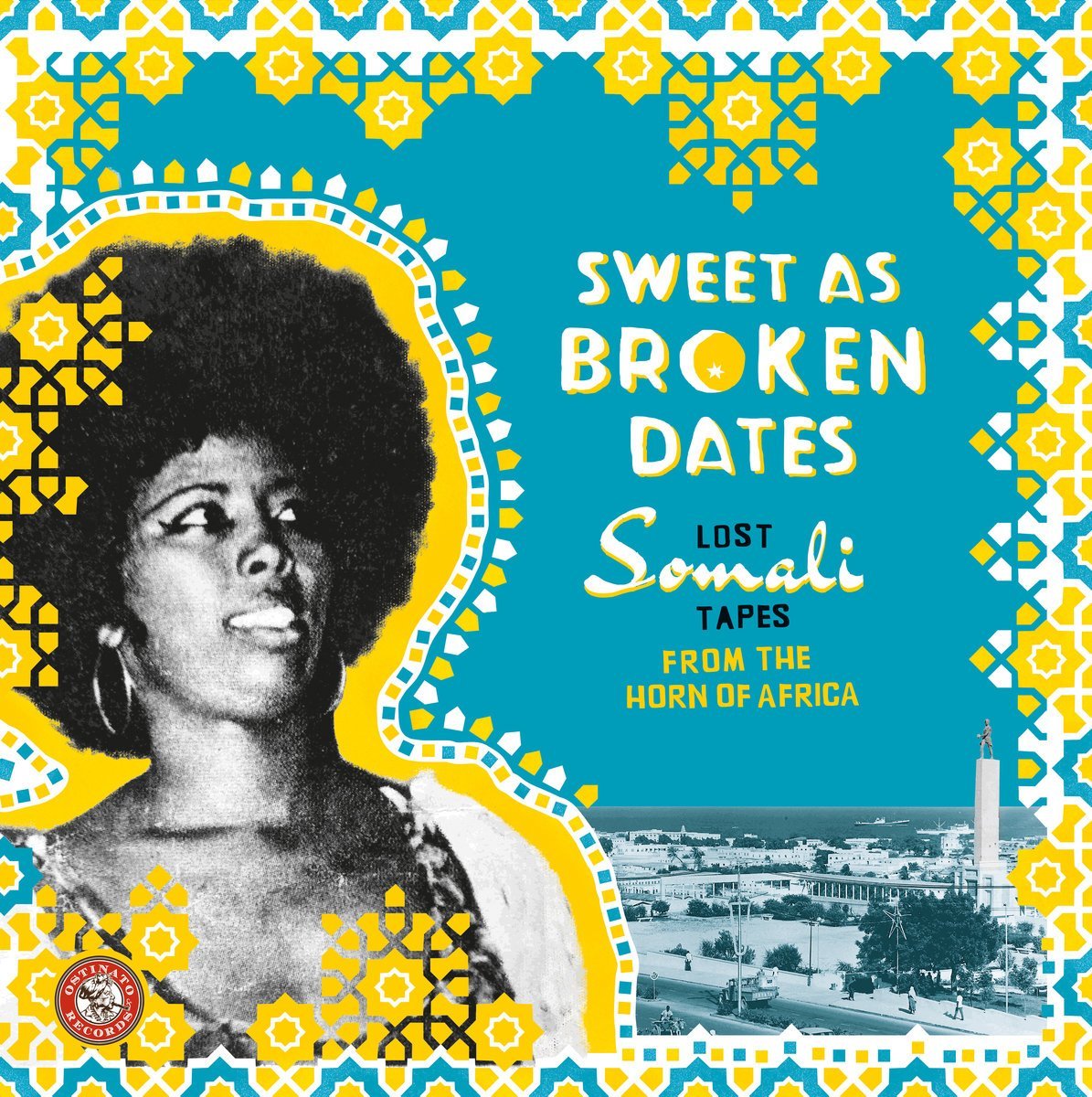It was a time of hip “big band” music, thanks to the ingenuity of New Orleans, forever socialized by life once upon a time in Faubourg Treme. The French language was an ideal for all urbanites around the world, as was clean urbanism and a society of gestures. It was also a time of identity and nation building, of deep divisions, which saw arrangers attempt to make big band music rooted in folk rhythms around the world. Earrings, dresses, my cousin in government, “have you heard,” Sweet As Broken Dates brings forth the music that fueled such living, once scattered as Lost Somali Tapes.
It’s scarily good. Produced during the socialist dictatorship, it was originally released by the government. You’d think that millions of us chose to vote for liberty and not dogma, to dance to rock and hip-hop because the world before it was atrocious. Remember Prague in ‘68? You’d think that the dialectic of society like in the 70’s and 80’s in Somalia, with its dogmatic socialist chiefs, etc., could not produce orchestrated music dear to your heart. Wrong again. Why?
It’s theatrical, romantic, well-composed and well-arranged from start to finish. Rhythm is the album’s strong suit. Complexity, like on Nimco Jamaac’s psychedelic sounding “Buuraha U Dheer,” makes for expertly executed and entertaining art. Mahmud Abdalla Hussen, Faadumo Qaasim: those names do not ring a bell in most circles, but their singing and that of others on this album are at an absurdly high level as if the product of centuries of tradition to produce such dates, broken dates.
There is a funkiness to many of the album’s songs that goes beyond American funk. It is an elegant fusion of synth and organ music. Aamina Camaari’s groovy “Rag Waa Nacab Iyo Nasteexo” is as wonderful as it reminds of reggae music, thanks to its dhaanto. It would be great to hand this album to an anthropologist or a musicologist for an in-depth discussion on funk and groove in Somali history and society.
Where did they eat after these parties? Who were their favourite disc jockeys? Who fell in love with whom? This album seduces in the end. Imagine it: East Africa, the Indian Ocean, socialist rhetoric, seaside tuxedos and dresses, white paint on buildings. Palm trees. Sandals. Lively living. Genial music. Tragically, war would end Mogadishu’s musical spring, but what beautiful music.


